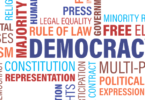Legal Awareness and Legal Reasoning Quiz:
Right to Property was omitted from Part III of the Constitution by the
(a) 42nd amendment
(b) 44th amendment
(c) 86th amendment
(d) 62nd amendment
Right to Property was removed from Fundamental Rights by which amendment
(a) 29th
(b) 25th
(c) 44th
(d) 42nd
FIR stands for
(a) Fact Information Report
(b) Further Information Report
(c) Frequent Information Report
(d) First Information report Correct
Fundamental Rights are included in articles
(a) 15-24
(b) 12-36
(c) 36-51
(d) 52-62
The procedure for amending the Constitution of India is
(a) Rigid
(b) flexible
(c) partly rigid and flexible
(d) None of these
Related: Fill in the Blanks Practice Quiz
Protection of Interest of minorities is envisaged in which article ?
(a) Article 25
(b) Article 20
(c) Article 29
(d) Artcile 30
Village Panchayath is organized under which article of the Constitution of India
(a) Article 37
(b) Article 38
(c) Article 39
(d) Article 40
Zonal Councils are associated with which article ?
(a) Article 173
(b) Article 226
(c) Article 263
(d) Article 217
Who was the chairman of the Constitution Drafting Committee?
(a) Jawahar Lal Nehru
(b) Dr B.R. Ambedkar
(c) Dr Rajendra Prasad
(d) Sardar Vallabhai Patel
Related: English signs and symbols
Public Interest Legislation (PIL) can be file by
(a) Any citizen of India
(b) Minimum 10 person
(c) M.L.A of municipal councilor
(d) Any registered association
Quo warranto is
(a) Writ
(b) statute
(c) Treaty
(d) Act
Ignorance of law is
(a) not an excuse in Law
(b) is an excuse in Law
(c) no such legal principle is followed in Law
(d) partly an excuse in Law Correct
Untouchability Offence Act 1955 was renamed as “The Protection of Civil Rights Act 1955” in
(a) 1972
(b) 1977
(c) 1955
(d) 1976
Communalism is opposed to
(a) Secular credential
(b) ethnic conflict
(c) friendship between class
(d) All of the above
Related: Fill in the blanks questions
In the Indian federal system, residuary powers rest with the
(a) Local government
(b) State government
(c) Centre government
(d) Judiciary
Original jurisdiction of the Supreme Court is contained in
(a) Article 131
(b) Article 129
(c) Article 132
(d) Article 136
The term federal is derived from the Latin word ‘foedus’ which means
(a) Separation
(b) Distribution
(c) Covenant
(d) None of these
The High Court has the power to issue writ under article
(a) 32
(b) 220
(c) 226
(d) 344
Related: President of India (eligibility, Power and List)
In consequence of the death or incapacity of the President, vice President can become the President for
(a) 6 months
(b) 12 months
(c) 1 month
(d) 5 months
The High Court in India do not possess
(a) Original jurisdiction
(b) Appellate jurisdiction
(c) Advisory jurisdiction
(d) Revisory jurisdiction
The Governor of a state is a
(a) Constitutional head
(b) real head
(c) Hereditary head
(d) nominated head
The authority to alter the boundaries of state in India rests with
(a) State government
(b) Parliament
(c) Prime Minister
(d) President
Related: Profit and loss mcq
The President of the Indian Republic has
(a) Only suspensive veto
(b) Absolute veto
(c) Pocket veto
(d) None of these
Minto Morley Reforms is also known as
(a) Government of India Act 1919
(b) Government of India Act 1892
(c) Government of India Act 1935
(d) Government of India Act 1909
Which among the following is not created by the Constitution?
(a) Planning Commission
(b) Finance Commission
(c) Election Commission
(d) UPSC
The British Parliament passed the Indian Independence Act in
(a) July 1947
(b) January 1947
(c) June 1947
(d) August 1947
Related: Political Party Symbols with Names
Which among the following Acts introduced the principle of election for the first time?
(a) Indian Council Act 1909
(b) Indian Independence Act of 1947
(c) Government of India Act 1935
(d) Government of India Act 1919
Which among the following type of authority is given to the President of India?
(a) Political
(b) Popular
(c) Defacto
(d) Dejure
In India the power of ‘amnesty’ has been given to the
(a) President
(b) Prime Minister
(c) Chief of the Army
(d) Parliament
The President of India can dissolve the House of People on the recommendation of the
(a) Vice President
(b) Chief Justice
(c) Cabinet
(d) Council of Ministers
Related: Hard Logarithm Questions
Which among the following is not a Fundamental Right?
(a) Right to Equality
(b) Right to Freedom
(c) Right to Property
(d) Right against exploitation
The age to exercise franchise was reduced from 21 years to 18 years by
(a) 42nd amendment
(b) 61st amendment
(c) 72nd amendment
(d) 44th amendment
The President’s rule in a state can be continued at a stretch for a maximum period of
(a) 4 years
(b) 2 years
(c) 3 years
(d) one year
The classification of government as unitary and federal is on the basis of
(a) Centralization of power
(b) division of power
(c) delegation of powers
(d) separation of powers
Related: Family law mcq
The election to the Constituent Assembly was held in
(a) June 1946
(b) July 1946
(c) August 1946
(d) September 1946
The position of the Vice President of India resembles to the position of Vice President of
(a) France
(b) USA
(c) Canada
(d) Russia
What is Habeas Corpus?
(a) An order from a court to free a person who has been illegally detained by the police or any other person
(b) An order from a superior court calling up the record o* a proceeding in an inferior court for review
(c) An order from the superior court to an official to show his right to the office
(d) An order from the higher court to stop proceeding in a certain case
Right to Property is included in Article
(a) 32
(b) 19
(c) 31
(d) 14
Directive Principles of State Policy is
(a) Justifiable
(b) non-justifiable
(c) mandatory
(d) None of these







Great Content.